Purchasing a boat is a big decision. When deciding to purchase a boat, individuals often worry about factors such as upfront cost and maintenance.
We’ve been there and we understand. However, there is a solution to all of these problems – inflatable boats.
Inflatable boats aren’t just affordable – they’re also safe, stable, and easy to maintain. It’s no wonder that they’re becoming increasingly popular.
Even when you’ve made a decision and are ready to buy an inflatable boat, one question remains – are you going to opt for a traditional inflatable boat or a rigid inflatable boat (RIB)?
Both options have advantages and disadvantages, and it can be difficult to determine which is the correct choice for you.
However, you no longer have to worry about this – we have compiled a comprehensive comparison of each boat so that you have all the information required to weigh your options and make a decision.
From purpose to materials and affordability, we address it all in the guide below – check it out to learn all about inflatable boats vs. RIBs.
Table of Contents
Inflatable Boats vs. RIBs
While both types of boats are inflatable boats, fully inflatable boats are known as Soft Inflatable Boats (SIBs) whereas RIBs are Rigid Inflatable Boats.
Sometimes, people refer to all inflatable boats as RIBs. However, the two kinds of boats have some stark differences, which can be either advantages or disadvantages depending on your unique requirements.
Soft Inflatable Boats (SIBs)
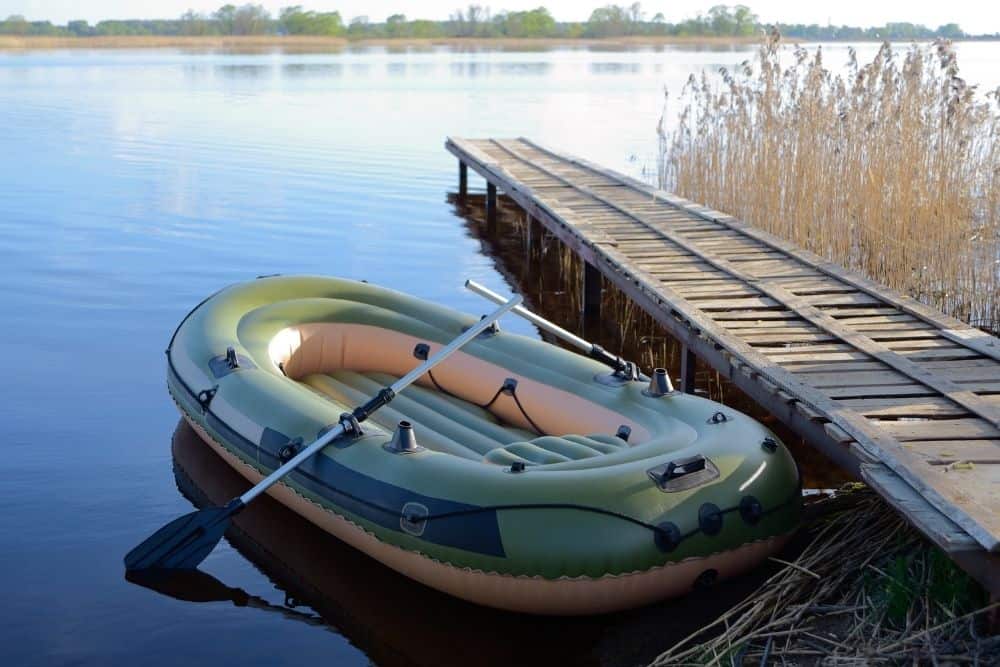
Soft Inflatable Boats (SIBs) are fully inflatable boats without hard hulls. Therefore, they can be fully deflated and stored.
Rigid Inflatable Boats (RIBs)
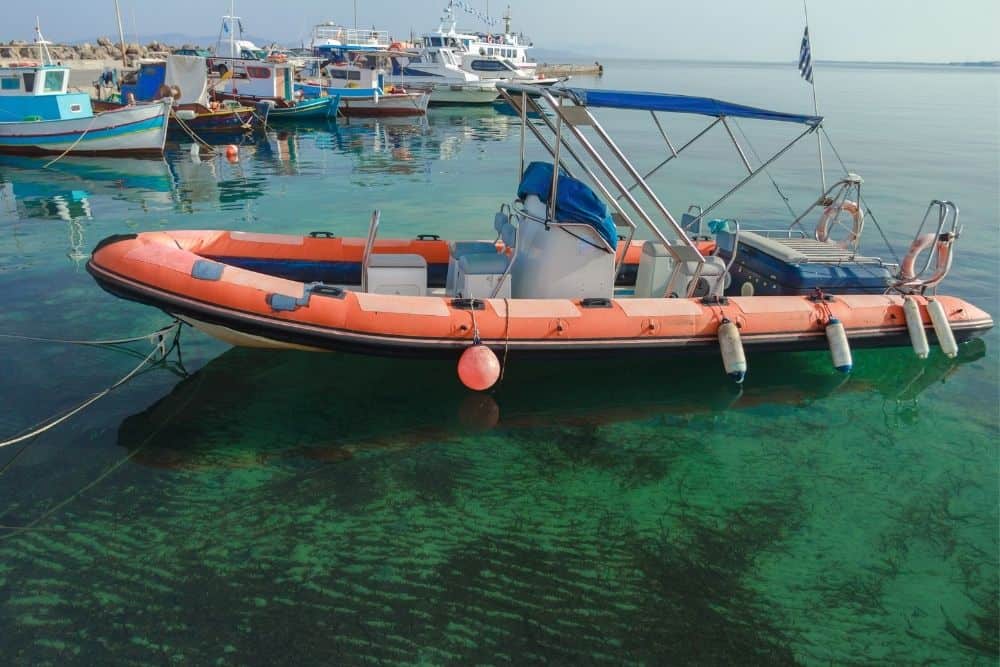
Rigid Inflatable Boats (RIBs), on the other hand, boast solid hulls and can’t be folded up.
While this is the basic difference between the two, there are many other factors to take into consideration – read on for a thorough comparison of SIBs and RIBs.
SIBs vs. RIBs: A Comparison
While both options are inflatable boats, they differ in many ways – read on to see exactly how different factors affect the comfort, performance, and structure of these inflatable boats.
Hull
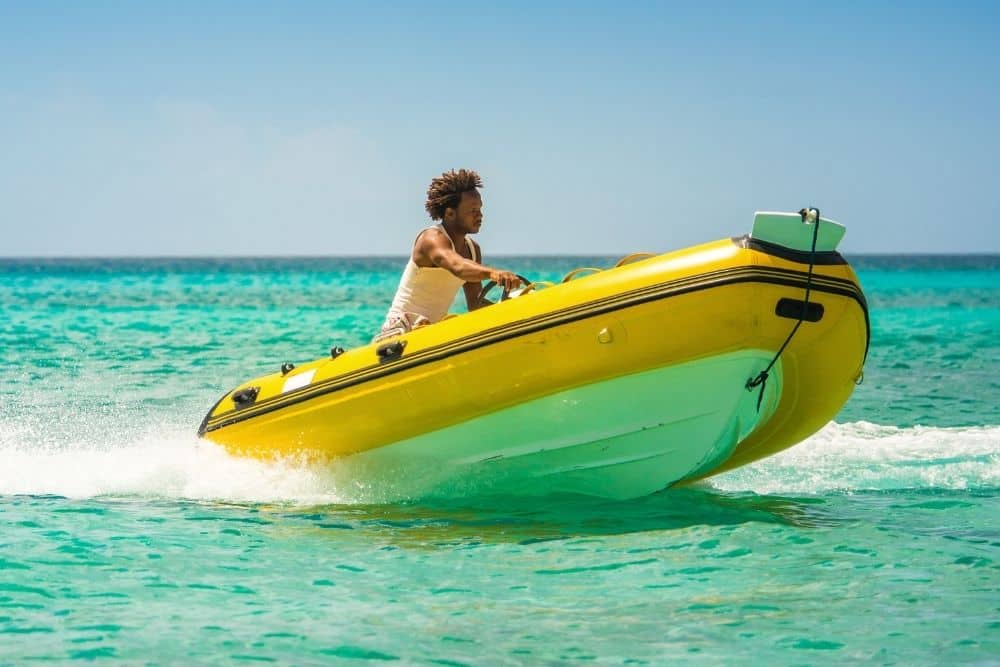
SIBs have soft, lightweight hulls which make them not only easy to transport, but also excellent for shallow-water fishing.
However, this also makes them more susceptible to flipping in the water when going fast. Additionally, SIBs sit lower in the water, making the ride much wetter.
RIBs have heavier hulls but have the advantage of more stability in rough conditions. They’re also able to handle higher speeds without flipping in the water.
Structure
Because SIBs aren’t made with any rigid materials, they don’t have a lot of structure to them. Therefore, they’re very compact and able to be folded.
RIBs, on the other hand, not only have a solid hull, but also have rigid flooring. This makes them much sturdier and able to withstand rough currents.
Convenience and Ease of Use
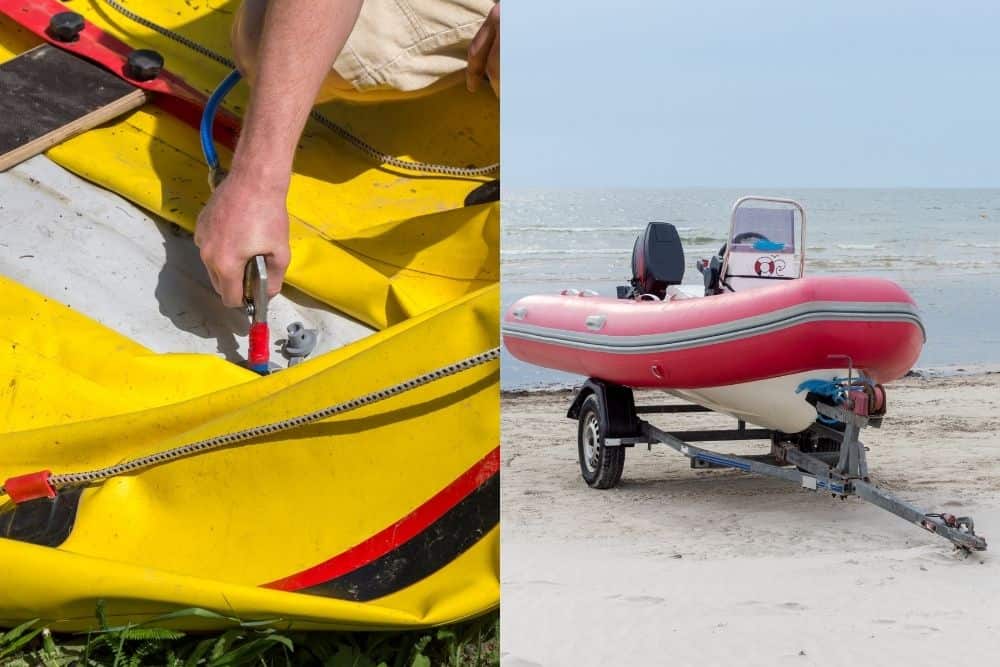
If convenience is your main priority, then SIBs are the way to go. Because they’re so lightweight, they’re portable and can be easily stored by folding them up.
RIBs, on the other hand, are much heavier. Not only are they harder to launch, bring ashore, and stow, but they also require transportation in order to be moved.
In addition to needing a trailer or truck for transportation, you will also require storage space.
Comfort
Because RIBs have solid floors, they’re much sturdier and more comfortable than their SIB counterparts. Additional seating and storage can also be installed for added comfort.
They’re also more comfortable on the water because they can go fast while maintaining their stability.
SIBs aren’t as comfortable since they limit both, speed and weight. The air floors aren’t as stable and sitting on them can get uncomfortable after long periods of time.
Durability
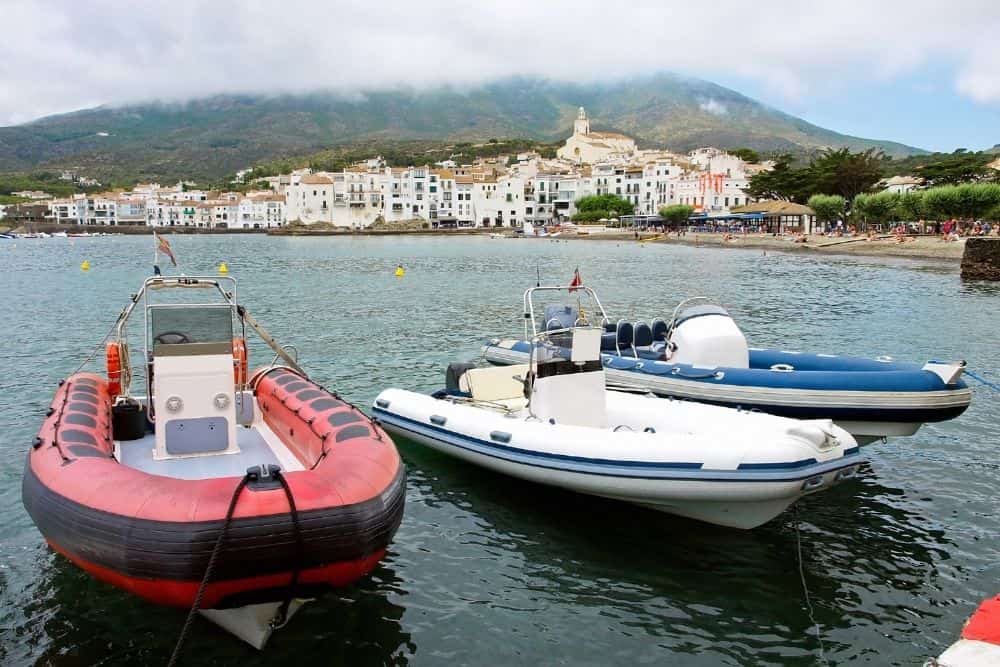
SIBs are often thought of as weaker than RIBs because of their susceptibility to punctures and leaks. However, RIBs are also susceptible to damage.
Despite their wood, fiberglass, or steel hulls, RIBs can also get scratched or dented. In fact, they can even experience blistering and spider cracks, leading to water getting through.
Therefore, both types of boats are susceptible to damage. The damage to SIBs can often be fixed easily – check out our article on inflatable boat sealant to learn more about this!
Materials
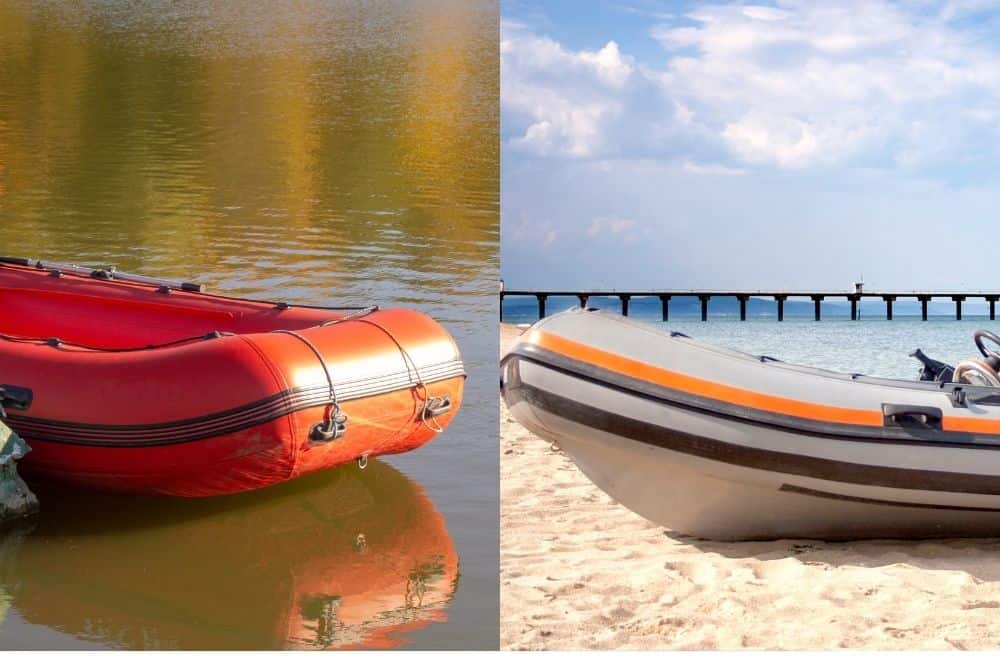
The three main materials used in the construction of SIBs are Polyvinyl Chloride (PVC), Polyurethane (PU), and Chlorosulfonated Polyethylene (CSM). The latter was previously known as Hypalon but was discontinued in June 2009.
RIBs also use PVC, PU, and CSM in the construction of the inflatable tubes. However, the hulls are made from materials like glass reinforced plastic (GRP), aluminum, and carbon fibre.
Affordability
SIBs are much more affordable than RIBs. RIBs offer convenience, storage, and seating, all of which comes at a price.
If you’re willing to pay this higher price, an RIB is an excellent investment. However, if you’re on a budget, we would recommend an SIB since they’re so cost-effective.
Compatibility with Trolling Motors
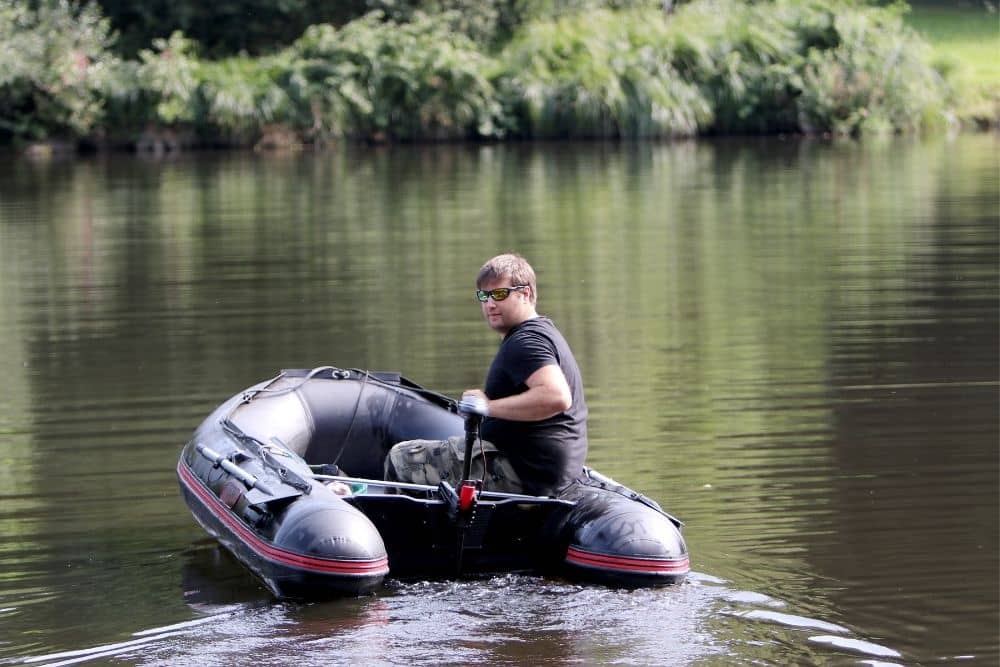
While both SIBs and RIBs can be equipped with trolling motors, trolling motors are generally more compatible with RIBs.
A major part of this is because SIBs can only hold a limited amount of weight whereas RIBs are able to carry substantial amounts of weight.
While it can be done, it can be a difficult task since different factors have to be taken into account, including weight, support, availability of mounting plates, etc.
Fishing Purposes
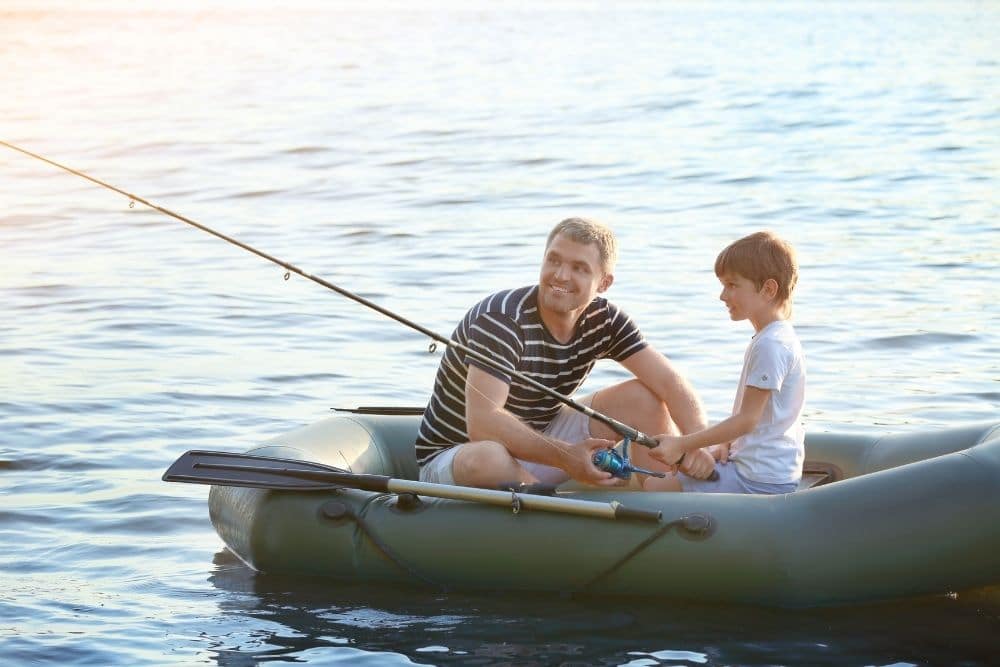
Practically speaking, both types of inflatable boats can be used for fishing. However, because of their many differences, they are suitable for different types of fishing.
For example, an SIB would not be the boat of choice when fishing on a windy day – the boat can move from side to side, even if anchored. Comfort can also be an issue, especially when fishing for long periods of time.
However, because of how easily they can be beached, SIBs are excellent choices for shore fishing. RIBS, on the other hand, are not suitable for beaching.
If you’re planning to fish in choppy waters, RIBs are the way to go. When it comes to rough weather conditions or deep-sea fishing, RIBs are your best friend.
Therefore, both options have their advantages and disadvantages – the right choice depends on every angler’s individual needs and requirements.
Conclusion
We hope that this article has been useful in illustrating the differences between traditional inflatable boats and RIBs and is helpful when you make your choice. Let us know how your experience with inflatable boats has been and which boat you prefer in the comments below!

I created this site to help people – to help you – with your boat problems. Instead of helping one person at a time, I want this website to be the “one-stop-shop” for everyone’s boating concerns. Read more.

